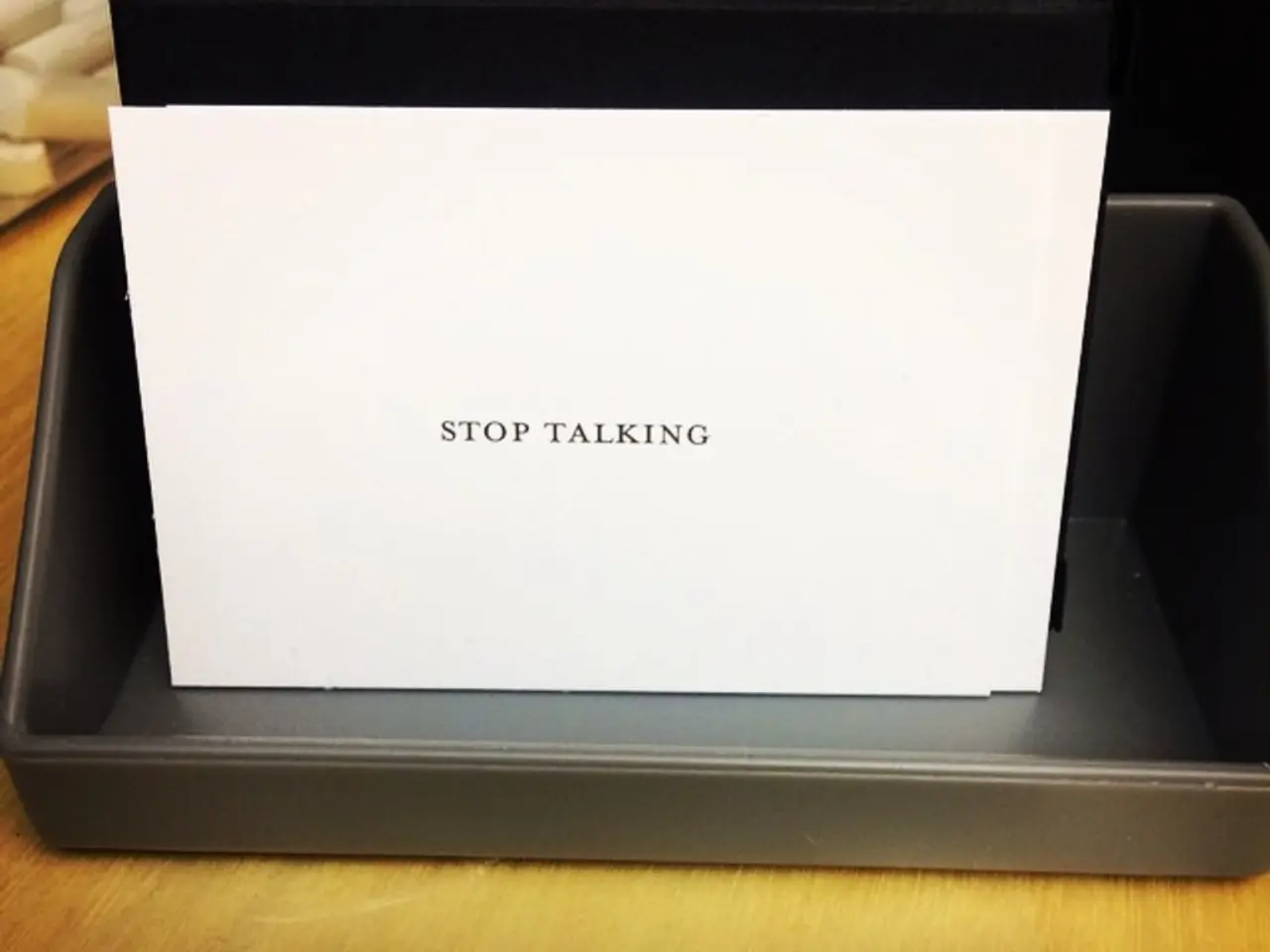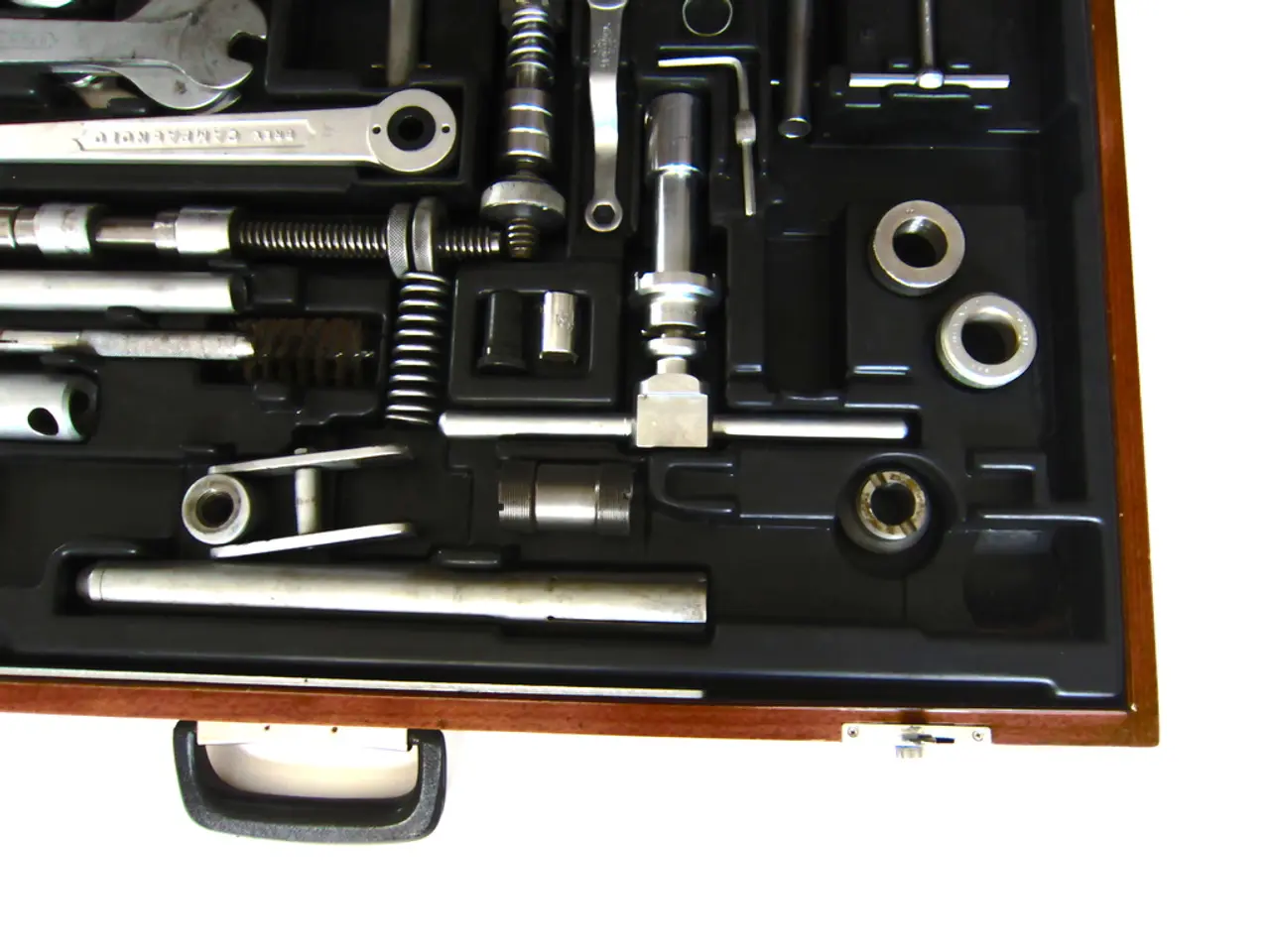Embrace a Change: Ditch the Excuse of Being Overwhelmed
In today's fast-paced world, the phrase "I'm so busy" has become a common refrain. However, a growing body of research suggests that this narrative, while seemingly harmless, can have detrimental effects on our mental, emotional, and physical health.
Increased Anxiety and Rumination
Constantly framing life as "busy" keeps the mind in a self-referential loop focused on worries, judgments, and stresses. This perpetual state of busyness activates the brain's default mode network in a way that can drive anxiety and rumination rather than peaceful presence[1].
Reduced Capacity for Flow and Happiness
When attention is always occupied with a busy narrative, people are less likely to experience “flow” states—moments of deep engagement where time seems to dissolve and happiness increases[1].
Strained Social and Family Relationships
Being "too busy" often leads to neglected communication and emotional connections, which can cause rifts, such as in father-son relationships where one party feels overwhelmed with obligations and retreats from contact[2].
Physical and Mental Health Decline
The busy narrative can contribute to behaviors like "revenge bedtime procrastination," where people sacrifice sleep to reclaim personal time, resulting in sleep deprivation and its linked consequences—impaired cognition, mood regulation problems, increased risk of depression and anxiety, and weakened immune function[3].
Burnout and Exhaustion
Over-identifying with busyness can lead to chronic stress and burnout, impacting overall well-being and life satisfaction[2][3].
In summary, perpetuating a "so busy" narrative fosters mental and emotional strain, disrupts meaningful engagement and relationships, and often harms physical health due to poor recovery and stress management. It encourages a cycle of stress and distraction rather than presence and well-being[1][2][3].
However, prioritizing complete honesty about one's busyness behaviors can lead to valuable insights. Looking at next week and even next month can help in identifying things to remove to reduce busyness. Being intentional about where one's energy goes is a worthy investment of one's time.
The "I'm so busy" narrative also reinforces the idea that we have to measure who we are by what we accomplish. Unplugging from devices and notifications can help reduce feelings of busyness.
Moreover, defining what leisure time and free time mean to an individual is important in managing busyness. Saying no can be helped by reading a book about slowing down. Protecting one's time is allowed and essential for personal control of yeses and nos. A simple "this isn't a great time but how about next Wednesday?" is a usually well-received scenario for declining invitations.
Rethinking the way we approach busyness and embracing a more mindful, intentional lifestyle can lead to a more balanced, fulfilling life. As the author who started writing about busyness and slowing down in 2010 shared on social media, "Let's stop telling each other how busy we are."
References:
[1] Killingsworth, M., & Gilbert, D. (2010). A Wandering Mind Is an Unhappy Mind. Science, 330(6006), 932-932.
[2] Csikszentmihalyi, M. (1990). Flow: The Psychology of Optimal Experience. Harper & Row.
[3] VanderWeele, T. J. (2017). Sleep and Mental Health: A Review of the Evidence. American Journal of Psychiatry, 174(2), 130-140.
Prioritizing education-and-self-development resources and focusing on personal-growth strategies can mitigate the detrimental effects of a "busy" lifestyle by fostering mindfulness, promoting optimal experiences, and enhancing overall well-being.
Embracing a lifestyle centered around health, business, lifestyle, and education-and-self-development can lead to a more balanced, fulfilling life as one consciously manages their energy and time for a more mindful and intentional existence.




